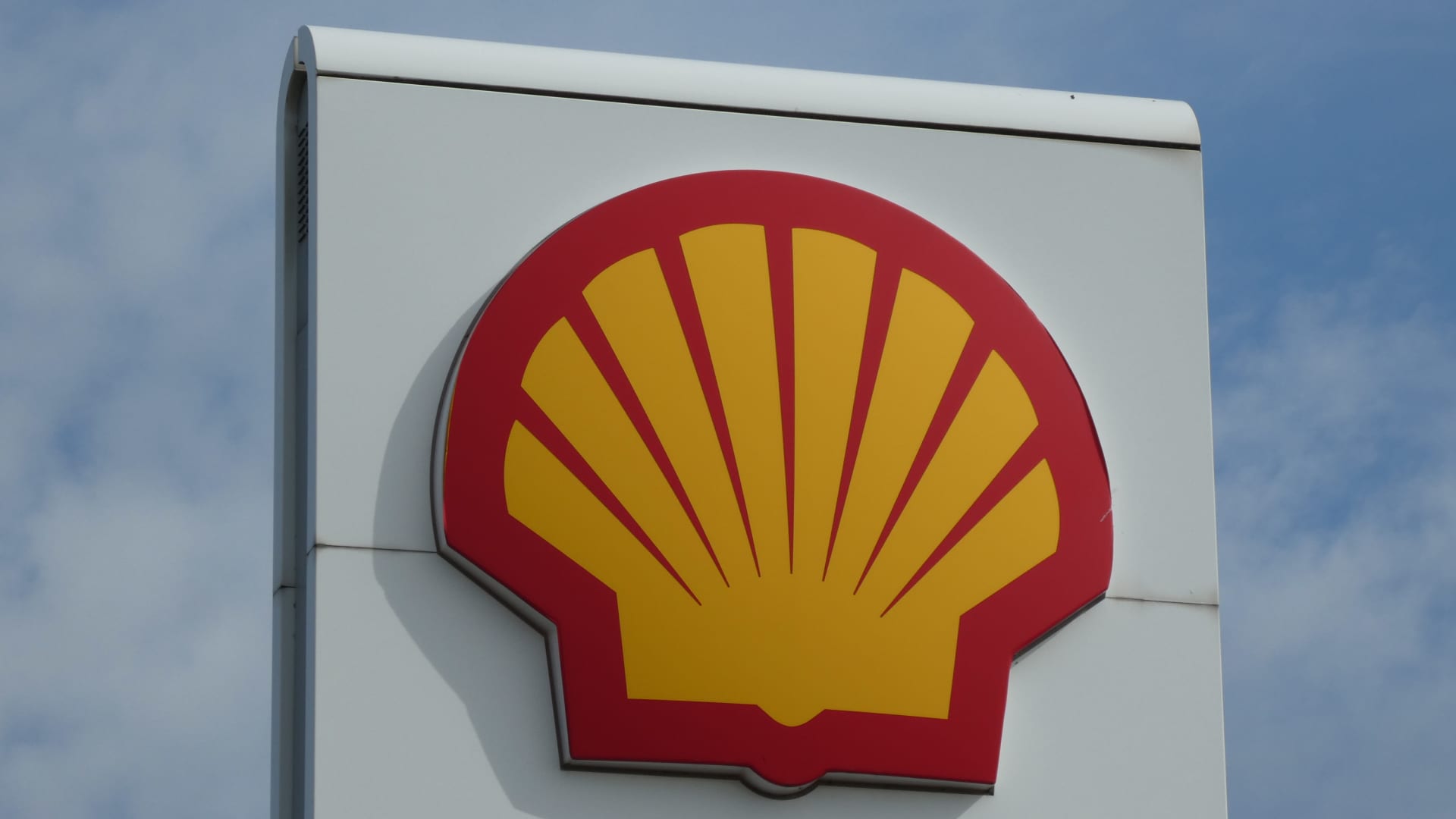General view of the Shell logo.
Picture Alliance | Picture Alliance | Getty Images
LONDON — British oil giant Shell on Thursday reported a sharp year-on-year drop in second-quarter profit, citing lower fossil fuel prices and refining margins.
Shell posted adjusted earnings of $5.1 billion for the three-month period through to the end of June, missing analyst expectations of $6 billion, according to estimates collated by Refinitiv.
The company reported adjusted earnings of $11.5 billion during the same period of last year and $9.6 billion for the first three months of 2023.
Shell increased its quarterly dividend by 15% to $0.33 per share, as previously communicated in mid-June. It also announced $3 billion in share buybacks, a program it expects to complete over the next three months.
“At the end of the day, we have a balanced energy transition strategy. What we are looking to do is to be able to do the right things for now and for the future, both for our shareholders and for the planet,” Shell CEO Wael Sawan told CNBC’s “Squawk Box Europe” on Thursday.
“We are focused on creating more value with less emissions,” Sawan said. “And what that means is we will continue to pull all the levers to drive further value growth in the organization, while at the same time we will continue to meet our aggressive emissions reduction targets — both for our own emissions, as well as for our customers.”
Shares of the London-listed oil major slipped 2% on Thursday morning.
“The company had previously set the scene with downgrades in its earnings estimates to reflect a more normalised trading environment, but it has still missed expectations with today’s results,” said Stuart Lamont, investment manager at RBC Brewin Dolphin.
“The share buyback programme and increased dividend are good news for shareholders, but will inevitably come with questions attached in the current environment,” he added.
‘Softening oil and gas environment’
French oil major TotalEnergies also reported weaker-than-expected earnings on Thursday, posting second-quarter adjusted net income of $5 billion. It reflects a 49% drop from the bumper profit that the company logged during the same period of last year.
TotalEnergies CEO Patrick Pouyanne said the firm’s “robust” earnings came during a “favorable but softening oil and gas environment.”
Norwegian oil and gas giant Equinor had on Wednesday reported a 57% decline in year-on-year second-quarter profit as oil and gas prices slipped from last year’s high levels.
The West’s five largest oil companies raked in combined profits of nearly $200 billion in 2022 as fossil fuel prices soared following Russia’s full-scale invasion of Ukraine. For its part, Shell reported annual record profit of almost $40 billion for the full-year 2022.
Oil and gas prices were under pressure in the first half of the year, however, as global economic jitters outweighed supply-demand fundamentals.
The impact of lower commodity prices is likely to be mirrored across the energy industry, with Britain’s BP and U.S. rivals Exxon Mobil and Chevron all scheduled to report earnings in the coming days.
‘Activist noise’
Shell has been criticized for backing away from new oil output cuts in recent months. The company announced ahead of its Capital Markets Day conference in New York last month that it would maintain oil production at current levels through to the end of the decade, as part of a bid to generate more cash from its oil division.
It simultaneously reiterated its commitment to climate targets, saying it was making “good progress” toward becoming a net-zero business by 2050.
The burning of fossil fuels — such as oil and gas — is the chief driver of the climate emergency.
Shell on Thursday reduced its capital expenditure range for 2023 to $23 billion to $26 billion, down from a first-quarter estimate of between $23 billion to $27 billion for the full-year.
Asked whether the firm’s plans to invest up to $15 billion over the next three years on low-carbon projects would be enough to quell pressure from climate activists, Shell’s Sawan replied, “We need to do what is right for the company and what we believe is going to be a balanced energy transition.”
“What we look at is opportunities to be able to deploy that capital in a way that we can demonstrate returns to our shareholders. That is the limit of what we see at the moment,” he added.
“If new opportunities emerge that give us line of sight towards the sorts of returns that companies like ours should be going after, then absolutely we will grow our capital, but we cannot grow it on the basis of activist noise. That is not the right approach.”
The Shell annual general meeting in May was repeatedly disrupted by climate protesters, reflecting a palpable sense of frustration during the Big Oil proxy voting season.
Image and article originally from www.cnbc.com. Read the original article here.

